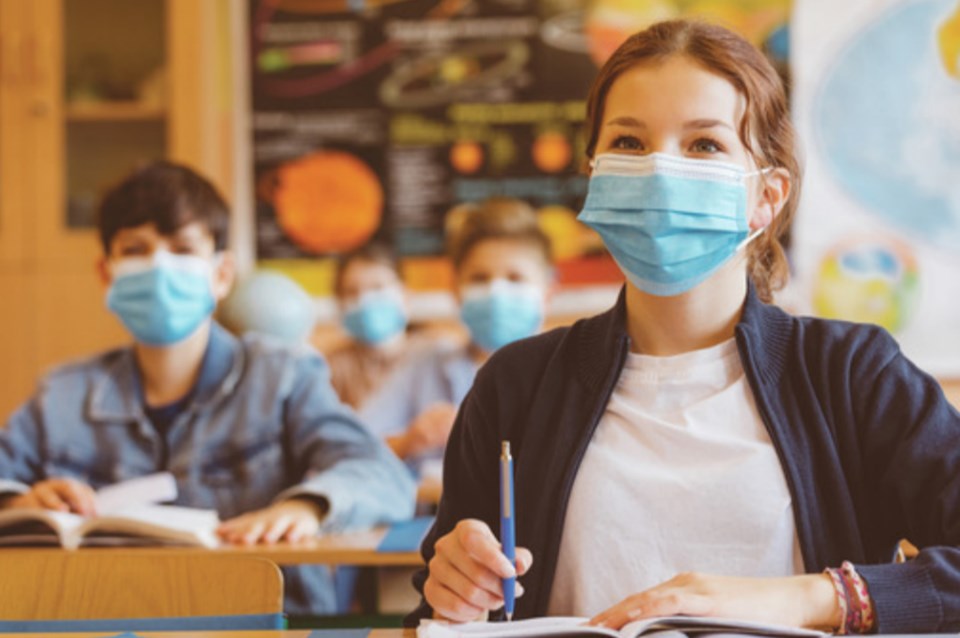On the one-year anniversary of the declaration of the global pandemic, the Government of Saskatchewan announced on March 11 nearly $29 million in approved funding to support schools during the pandemic.
This amount is meant to help school divisions and independent schools with sanitation, substitute teacher costs, procure PPE, and assist schools in ensuring proper supports for students are in place for the fall of 2021, the government said in release.
“This third round of funding will ensure school divisions continue to have the resources needed to keep schools safe for students and staff,” Education Minister Dustin Duncan said. “Nearly $21 million of this funding allocation will provide the supports necessary for school divisions as they make preparations for the fall.”
This funding is in addition to the $37.5 million announced in December and the $51 million announced in September. This funding is from the more than $150 million in the COVID contingency fund for education from provincial, federal and school division savings.
Fifty-three applications have been approved to provide new funding to school divisions, qualified independent schools and historical high schools. The applications are primarily for sanitation and substitute teacher costs, totalling $3.1 million in funds. In preparation for the fall, school divisions are receiving $20.7 million to be used for:
Interventions for Grade 1 students who did not attend Kindergarten in 2020-21;
Interventions to support Grade 1 to 3 students who are behind in their reading levels;
Support staff to reach out and engage with students and families that did not attend or had low attendance in 2020-21;
Supporting student mental health; and
Sanitation and PPE.
In addition, $4.9 million from the nearly $29 million will be allocated to school divisions and independent schools to recognize previous and future purchases made directly for PPE required to maintain the safe operations of schools during the pandemic.
With this latest allocation, the remainder of the COVID contingency fund for education has been distributed to school divisions, independent schools and historical high schools.
NDP response
New Democratic Party Education Critic Carla Beck, MLA for Regina Lakewood, said by phone from Regina, “I know that any funding will be appreciated by school divisions. I think this has been an extraordinary year. Of course, it goes without saying, for administrators, for school boards, and certainly frontline workers and teachers in our school. So, any amount of support I think will be welcomed.
“I do have some concerns about as we move towards the end, hopefully, of this pandemic, and we see vaccines roll out, I do think it's very important that we start looking at next year, and how we're going to provide supports to students. Even before the pandemic hit, we know that our classrooms were overcrowded in many cases, and under resourced.
“We know that this pandemic has been very difficult for learning for many, many students. It's been a difficult year for mental health of everyone in the province. But we're hearing a lot of concern about mental health of students. And I think it is very important that we start looking, now, at how we can support school divisions to help undo some of what has happened over the last year, in terms of learning loss, in terms of mental health concerns. And I think that that needs to be funded.
“It's good to see a start here. But we have to remember, that this was a system that was underfunded before the pandemic. And it's going to take some concentrated effort, cooperation, as well as funds, to make sure that we have a plan over the next several years to bring our students back to even where they were before the pandemic,” Beck said.
On that day, some high schools, like in Estevan and Weyburn, have resumed 100 per cent attendances, after months of running at 50 per cent capacity. Beck said in that regard, some divisions have moved to full-time, and some are still half-time. “This is where the local knowledge of boards is really important, and what’s going on, in local context,” she said.
“We're in a race between getting the vaccine out, and getting it into arms, and making sure people have some protection against the virus and the spread of these variants. So, where people are congregated in in high numbers, and exposed possibly to the virus, I think that still does remain a concern. And it's something that we shouldn't forget is a danger that that is present for those who are working in our classrooms.”



